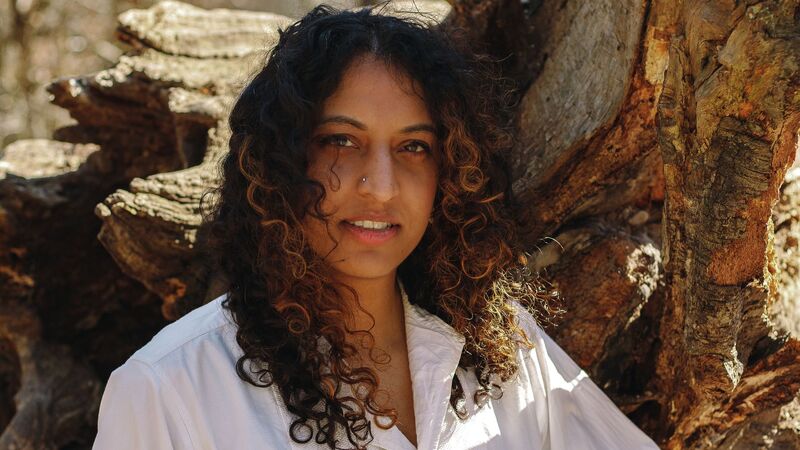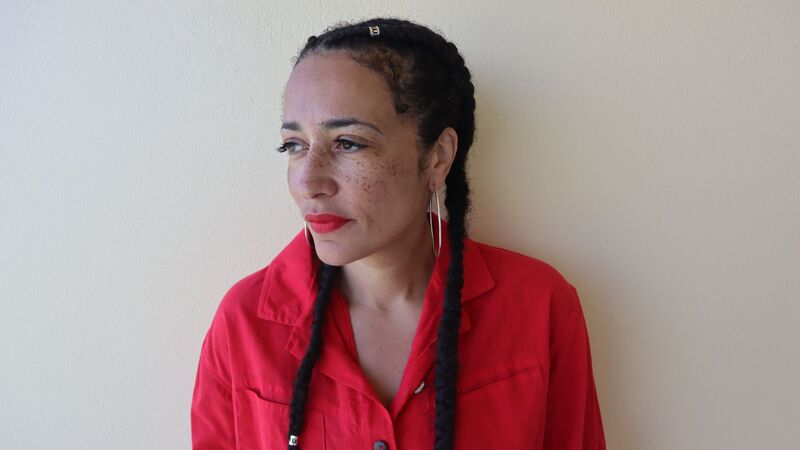You are viewing your 1 free article this month. Login to read more articles.
The world elsewhere
I write this while sat in the lovely Chapter One bookshop in the Northern Quarter in my home town of Manchester. I’m back home after popping across the Pennines from Lancashire to Yorkshire to partake in events at the brilliant Bradford Literature Festival. Yet despite the buzz at events such as these, there’s a disconnect between North and South, in wider society and in the publishing industry; the perspective from London can still see anything beyond as non-existent or inferior.
The Bradford Literature Festival hosted more than 500 events across 10 days, and on stage I discussed a wide range of issues, including modern-day slavery, the rise of the far-right in Europe, mental health and creativity, and the legacy of Vincent van Gogh. I also saw a great event at which luminaries including Carol Ann Duffy and Jackie Kay wrote poems inspired by the Brontë sisters. Such was the diversity of events on offer that I managed to fit Frank Bruno into the same day as the poet laureate.
Yet some London media literati grumbled tweets about terrible train journeys, barely mentioning the events, and instead getting back to twittering events in central London venues (it’s true that our atrociously overpriced train services haven’t done much to help social mobility, but there was also a whiff of snobby impatience). I, meanwhile, took a train from Bradford to Manchester, through the beautiful landscape that inspired many great poets.
The anthology I was in earlier this year, Seaside Special: Postcards from the Edge, featuring short stories from the north-west coast, received not a whisper in the mainstream press. We launched it at Blackpool’s Central Library. At that packed event, many audience members said it was the first time they had been to a literary event, but that they would be back. When I told people in London I would be going to Blackpool for an event, some laughed sniffily.
The book world is still shockingly London-centric, but this year there have been calls to redistribute the centre of power, for the so-called “Northern Powerhouse” to be powerful in publishing, too. The Northern Fiction Alliance, a group of independent Northern publishers, issued a call to arms in an open letter, with some strong points for tackling the North/South divide.
Practical reasons for redistribution of power are set out. Most potent is the “moral case”: “How much talent do we lose because, for a lot of people, London is too expensive, too far away or, frankly, too chaotic to move to? What message do we send and what narrative do we build when entry to this industry relies so heavily on insider networks and the wealth within one’s background?” The letter speaks of “bursting the publishing bubble and reconfiguring the industry, so the peripheries can inform the whole”. The alliance has drawn up an Eight-Point Plan for genuine change. It includes signing up to the Spare Room Project and offering accommodation for someone living outside of London while they undertake an internship or mentorship, and committing to paying interns the relevant Living Wage.
Quality of life
When I began my career in the media, I could not afford to live in London while undertaking unpaid and underpaid internships. Periodically, I would rent short-term places in appalling conditions before “boomeranging” back home in defeat, a pattern I’d have to repeat for years and still do—indeed, one of the reasons I am freelance is that I could never afford to hang around for long enough to get a foot on the elusive staff London ladder. In the periods I did live in London, my wellbeing would be so detrimentally affected by sub-standard living conditions, in rat-infested hovels, that I was not performing to my best abilities.
When some editors heard I was living back in Manchester they would stop sending me books for review—one sent an email: “Let me know when you’re back in London and I’ll send something for you”, as if books can only be sent to a London address and everywhere beyond is a black hole. No, guys. People can exist outside London, too, where they retain the great human faculty of being able to read.
Manchester has grown from strength to strength and this autumn I’ll be chairing events at its literary festival, with names including Alan Johnson in the magnificent Dance House. I’d advise London literati who come up for a couple of nights and dash back again to spend some time walking around, learning about its history—how Charles Dickens opened the first free public lending library in the city, for example. Elsewhere in the North, I’ve been journalist-in-residence at the delightful Durham Book Festival, where I had the pleasure of sleeping in an ancient castle which did make up a little for all those rented hovels.
“There is a world elsewhere,” as Shakespeare declared, and it exists beyond the M25.
Anita Sethi is a writer and journalist, and judge of the Costa Book Awards 2018.
Seaside Special: Postcards from the Edge was published in May by Bluemoose Books in paperback format, priced £8.99. Edited by Jenn Ashworth, it contains 10 short stories portraying lives and landscapes of the north-west coastline of England. Anita Sethi’s fellow contributors include: Louise Ayre, Carys Bray, Bethan Ellis, Andrew Michael Hurley, Pete Kalu, Paul Kingsnorth, Kirsty Logan, Melissa Wan and Lucy Wilkinson Yates.




















